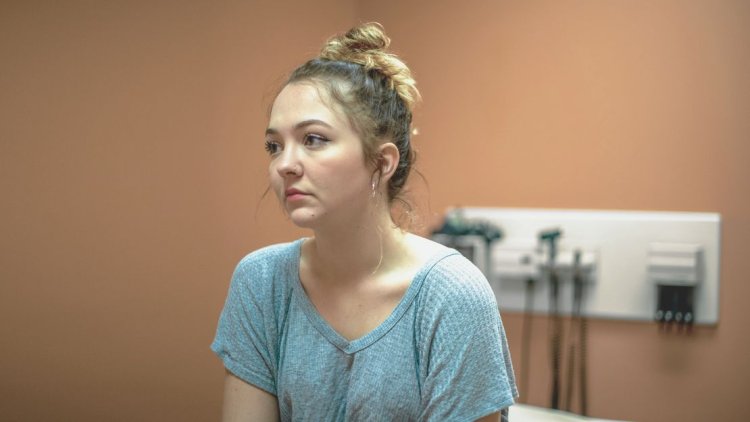9 Things to Do Before Your Teen Leaves for College
Students may be confused about contraception and reproductive health rights amid the changing legal landscape, but support from adults can help them empower themselves.

On June 24, 2022, the U.S. Supreme Court overturned Roe v. Wade, ruling that women do not have a constitutional right to an abortion.
The matter is now is left up to the states, and many legislatures are limiting or even outlawing abortion.
One month after the decision, 11 states had either banned abortion completely or implemented a ban on abortion starting at six weeks of pregnancy, according to the Guttmacher Institute, a research and policy organization committed to advancing sexual and reproductive health and rights worldwide. As many as 26 states overall are certain or likely to ban abortion, also according to the Guttmacher Institute.
Abortion Bans Spawn Confusion About Contraception and Reproductive Rights
Many people are living in confusion about what options are available to them, says Julia Bennett, director of digital education and learning strategy at Planned Parenthood Federation of America. This uncertainty may be particularly acute for young people going off to college this fall, some of whom may be traveling out of state to do so, she says, noting that they may be less experienced with navigating healthcare systems or may face logistical challenges and delays if travel is required.
Well-intentioned parents and concerned adults can avoid common pitfalls. Two things not to do:
Don’t make assumptions about what they know or don’t know. Do they know the difference between birth control and preventing sexually transmitted diseases (STDs), Bennett asks. They may not know exactly what emergency contraception is or whether they need a prescription to access it, she explains.
Don’t assume they will talk to you. You don’t have to be a “sexpert” to be a resource for your child, but it is important that your child knows that they can come to you or another trusted adult with questions or issues around sexual and reproductive health, says Jasmine Reese, MD, director of the Adolescent and Young Adult Specialty Clinic at Johns Hopkins All Children’s Hospital in St. Petersburg, Florida.
“Be very explicit in telling them that if they ever need help accessing birth control, STD services, or an abortion, you will be very supportive and help them do that — and that they can always come to you if they’re ever in a situation where they need help,” says Dr. Reese.
Let them know that you are an open, trusted, and nonjudgmental resource for them, Bennett suggests.
“Young people need adults who are going to get them credible information. There are lots of online sources where your child may be looking, and these places don’t always have credible information,” says Reese. These sites may even be crisis pregnancy centers in disguise (read more about this issue below).
Enable Informed Decision-Making: Get Up to Date on What You Want Them to Know
“Abortion is one thing we want to think about in case they need to access it,” stresses Bennett. Other important issues to discuss include birth control to prevent unintended pregnancy, as well as using barriers such as condoms and dental dams to prevent sexually transmitted infections, she says.
Here, a look at nine important steps parents and other adults can take to support young people.
1. Determine Abortion Access in the State Where Your Kid Attends College
Know the laws regarding abortion access in the state where your child will be attending college — before they arrive on campus. “Many state legislatures are banning or severely restricting access to abortion and stripping people of the ability to manage their own reproductive health. These are often the same states that are hostile to things like sex education and contraception,” says Bennett. The Guttmacher Institute offers an interactive map that places states in one of seven categories, ranging from “most restrictive” to “most protective” of abortion access.
Locate the nearest abortion provider at abortionfinder.org, a website from Power to Decide, says Bennett. “They have information both about state-by-state laws and regulations around abortion, as well as an incredible comprehensive list of trusted abortion providers across the United States, including Planned Parenthood and non-Planned Parenthood providers,” she says.
Make sure your teen knows what they can do to set themselves up for sexual health success, says Bennett, which includes knowing where to get STD testing, condoms, birth control, and emergency contraception. Check out the university’s student health center and the local community health department to get a sense of what services they provide and what they charge for them, she suggests.
2. Take Your Teen to the Doctor
Your teen’s primary care doctor, pediatrician, or gynecologist can be a good resource, especially for parents who may not feel equipped or comfortable having conversations about sexual health, says Reese. “A pediatrician or adolescent medicine doctor has training in this area. We do a lot of anticipatory guidance on reproductive and sexual health for all of our young adults, regardless of gender or sexuality,” she says. “We can talk about what to expect, what’s ‘normal’ for their age, sexual exploration, and gender identity,” says Reese. They may also discuss birth control, safe sex, and STD prevention.
3. Learn to Spot and Avoid Crisis Pregnancy Centers
Crisis pregnancy centers (also called CPCs or fake clinics) are clinics or mobile vans that are designed to look like legitimate healthcare facilities. However, CPCs don’t offer abortion services, abortion referrals, prescriptions for emergency contraception, or other healthcare services. Instead, they spread misinformation with the goal of preventing abortions by persuading women to continue their pregnancy.
Although CPC centers are technically legal, as they are protected by the First Amendment right to free speech, the ethics journal of the American Medical Association published an editorial saying, “their propagation of misinformation should be regarded as an ethical violation that undermines women’s health.” Unfortunately, these centers vastly outnumber abortion clinics or Planned Parenthood clinics; there are an estimated 4,000 CPCs across the United States, compared to about 600 Planned Parenthood locations.
4. Talk About Consent and Assault, Too
In addition to crucial conversations about STDs and safe sex, there are other discussions that young people need to have when they are engaging in sexual relationships, says Bennett.
Preparing in advance to have discussions about consent, boundaries, what they want to do and don’t want to do sexually, safe sex and STD prevention, and pregnancy prevention (if that’s a concern) can help those conversations go better, she says.
Not confident or comfortable advising your kid? Planned Parenthood has helpful videos that can help clarify issues around consent as well as how to discuss safe sex and STD testing with a potential sexual partner.
Sexual Assault Is Most Common During the First and Second College Semesters
Sexual assault is pervasive, and it’s estimated that about 1 in 5 women in college experiences sexual assault, with the risk being highest in the first few months of their first and second semesters in college, according to the Office on Women’s Health.
Some 26.4 percent of female undergrads and 6.8 percent of male undergrads experience rape or sexual assault through physical force, violence, or incapacitation. No matter what the circumstances, it is never the fault of the person who was assaulted.
If a person who is sexually assaulted is in immediate danger, they should call 911 right away. If they are in a safe place, they can also call 911 to report the incident to the police as soon as possible. School authorities can also be contacted for additional support; the college is legally required to help victims of sexual assault continue their education.
RAINN (The Rape, Abuse, and Incest National Network), offers a 24-hour National Sexual Assault Hotline, 800-656-HOPE (4673), as well as an online chat hotline.
5. Find Out Which Sexual Health Services Your Insurance Plan Covers
Many young adults have never managed a health appointment or inquired about insurance coverage on their own. Your teen may need a tutorial on what documents they need to have on hand to utilize any insurance coverage your family has, as well as help determining what will and won’t be covered, and what, if any, copays might be required. Showing them how to call and ask about coverage for a specific service or prescription could be a learning moment.
Although the Affordable Care Act calls for insurance to cover contraception, the rules don’t require plans to cover every single type of contraception. Sometimes newer products are left out, and some plans require preauthorization for covering some methods, such as intrauterine devices (IUDs), according to an NPR report. Contact your insurer to inquire about any out-of-pocket costs for the different options.
You can often get Plan B for free (or close to free) if you have health insurance, although you need a doctor’s prescription to get it covered. To be clear, you can also get Plan B without a prescription at the pharmacy, but insurance won’t cover it. Look for low-cost or even free emergency contraception at the health department or reputable clinics such as Planned Parenthood.
The National Network of Abortion Funds recommends calling the number provided on the insurance card to see if abortion is a covered benefit. If you have Medicaid, coverage will depend on the state you live in.
One caveat about teens using a parent’s health insurance for any of these services: They should be aware that their parents may receive an itemized bill from the insurance company detailing any services rendered or prescriptions filled, notes Reese.
“Young people should feel empowered to have open discussions with their providers, and we encourage them to also be open with their parents. However, if the young person doesn’t feel comfortable sharing that type of information, then the health department or student health center might be a better option, as they won’t have to use their parents’ insurance,” says Reese.
6. Encourage Young Adults to Consider the Contraception That’s Right for Them
For many, starting birth control before leaving for college is a good idea, Reese says. “Birth control pills are a good and safe method, and there are benefits besides pregnancy prevention,” she adds, noting that some options make periods more regular, help with cramping, and make periods lighter, according to the American Academy of Pediatrics.
In addition to the pill, there are many long-acting reversible and short-term contraceptive options to choose from. Information about the pros and cons of each method are outlined on the Planned Parenthood site, or your child can schedule an appointment with a healthcare professional to discuss options.
Long-acting reversible birth control options, such as IUDs and implants, can reduce the risk of pregnancy throughout one’s entire college life, says Bennett.
Your child should be aware that condoms are the only form of birth control that protects against sexually transmitted diseases, says Reese.
7. Discuss Options in Case Birth Control Fails
No method of contraception is 100 percent effective. Being aware of various options and talking through what to do “just in case” can help young adults make the best, most informed choices possible.
Emergency Contraception: It’s Not the Same as Abortion Medication
Emergency contraception (EC) can prevent pregnancy when taken shortly after unprotected sex or when the primary method of birth control failed. EC is not the same as an abortion pill, because EC prevents a pregnancy from ever occurring, explains Reese. An abortion pill, such as misoprostol, is taken once a pregnancy has started (more on that later).
It takes several days for a sperm and an egg to meet up and form an embryo to implant in a woman’s uterus. Plan B (levonorgestrel), the most common type of EC, works by delaying ovulation for a few days. That way no egg is available for the sperm to fertilize, so it prevents a pregnancy from ever happening, according to Planned Parenthood.
EC Is Available Over the Counter and by Prescription
Emergency contraception is legal and available in every state. Four EC products have been approved by the U.S. Food and Drug Administration (FDA). Three of these products, including Plan B One-Step, were approved for preventing pregnancy when taken within 72 hours (three days) of unprotected sex.
Plan B One-Step This was approved for over-the-counter sale by the FDA in 2013; no ID or parental permission is needed. The single-dose pill works best when taken within 72 hours of unprotected intercourse. While Plan B is a widely-recognized brand, levonorgestrel is sold under many other brand names.
Ella (Ulipristal Acetate) This is also a single-dose pill, which can be taken up to five days after intercourse, and it is recommended for women who weigh more than 165 pounds. It requires a prescription.
8. If They Want Your Help, Make It Easy to Plan for Worst-Case Scenarios, Pregnancy Scares
Bennett and groups such as Planned Parenthood recommend having EC on hand before you may need it. “Time is of the essence — the sooner you take it, the better off you are,” she says. Besides being available at the local pharmacy, it can also be ordered online as a generic brand called AfterPill, for $20 plus $5 shipping, according to Planned Parenthood. Although the company offers faster shipping options, it’s a better idea to buy it in advance to hold for future use, if needed.
It’s also smart to have a pregnancy test on hand or to know where you can get one quickly, says Bennett. “This is particularly true if you live in a state where there are time restrictions on abortion,” she says. Even if you’re in a state where there aren’t those restrictions, knowing that you’re pregnant earlier gives you more time to explore your options and get a plan together, she says.
What Will They Do if a Condom Breaks?
Talk through different scenarios with your teen, such as what they will do if contraception fails — including after-hours, when the health services office is closed.
“The timing of emergency contraception is really important, and so you want to take action as soon as possible,” says Reese. They could call their primary healthcare provider at home (whom they already have a relationship with) and explain the situation; another option is calling or going to the student health center, she says. If there is a Planned Parenthood or local health department location nearby, those are also good resources, says Reese.
However, if contraception fails on a weekend, their options may be more limited, she says. “In this situation, if they aren’t able to access EC from these channels, I wouldn’t want them to wait. They should go to their local pharmacy and buy over-the-counter emergency contraception,” says Reese.
Cost may be a barrier, but saving time is key. Over-the-counter (without a prescription) Plan B could cost around $40 to $50, but it's important to take it as soon as possible, because it’s most effective when taken within 72 hours of unprotected sex, she adds.
9. Discuss Abortion Options in the State Where They’ll Attend College
Once you’ve researched access to abortion in the state where your teen will be attending college, have a conversation about what they (or a sexual partner) would do if they needed to obtain an abortion.
Medication Abortion Can Be a Safe and Effective Way to End an Early Pregnancy
Medication abortion (or an abortion pill) is approved for use for up to 10 weeks of gestational age, although it can be used safely after this period, depending on the circumstances. Courts have ruled that banning medication abortion outright is unconstitutional, but some states do restrict its use, according to the Guttmacher Institute. The institute offers a snapshot of the state-by-state availability of medication abortion here.
Plan C, an information campaign started by public health advocates, has an online tool to help people locate medication abortion; many Planned Parenthood centers also have abortion pills or can help people find them.
It Is Legal to Cross State Lines to Obtain an Abortion
If abortion is restricted or illegal in the state where your child is attending college, they should be aware that there are no abortion bans that attempt to prevent women from crossing state lines to get an abortion or that prosecute those who do so, according to a New York Times report.
There Are Organizations That Can Help Cover Abortion Costs, Travel Expenses
An abortion can cost up to $750, but it can often cost less than that, depending on the state you are in and what your insurance covers, according to Planned Parenthood. Planned Parenthood and local health departments can also help individuals figure out how to make the procedure as affordable as possible, says Bennett.
First, women should reach out to the health center where they have made an abortion appointment and find out what financial resources are available through it, she says. Financial assistance may be available to cover the cost of the abortion itself and to help with any other funding issues, such as transportation and logistics, notes Bennett.
If the health center isn’t able to fully meet that need, another option is to contact the National Network of Abortion Funds, an organization that can help connect people with local groups that support abortion-related financial and logistical needs. Planned Parenthood can also help women figure out what insurance may cover and how else to cover costs.










